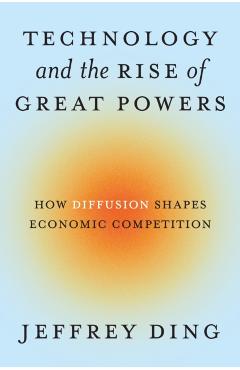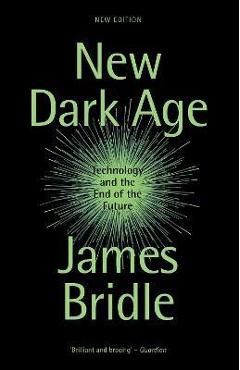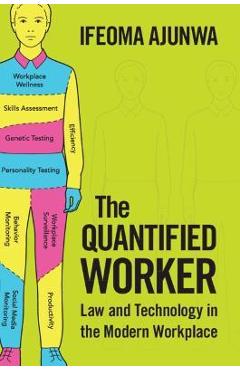Technology and the Rise of Great Powers: How Diffusion Shapes Economic Competition - Jeffrey Ding

Detalii Technology and the Rise of
libris.ro
222.83 Lei
247.59 Lei
Political Science
Jeffrey Ding
Technology and the Rise of - Disponibil la libris.ro
Pe YEO găsești Technology and the Rise of de la Jeffrey Ding, în categoria Political Science.
Indiferent de nevoile tale, Technology and the Rise of Great Powers: How Diffusion Shapes Economic Competition - Jeffrey Ding din categoria Political Science îți poate aduce un echilibru perfect între calitate și preț, cu avantaje practice și moderne.
Preț: 222.83 Lei
Caracteristicile produsului Technology and the Rise of
- Brand: Jeffrey Ding
- Categoria: Political Science
- Magazin: libris.ro
- Ultima actualizare: 28-10-2025 01:22:05
Comandă Technology and the Rise of Online, Simplu și Rapid
Prin intermediul platformei YEO, poți comanda Technology and the Rise of de la libris.ro rapid și în siguranță. Bucură-te de o experiență de cumpărături online optimizată și descoperă cele mai bune oferte actualizate constant.
Descriere magazin:
A novel theory of how technological revolutions affect the rise and fall of great powers When scholars and policymakers consider how technological advances affect the rise and fall of great powers, they draw on theories that center the moment of innovation--the eureka moment that sparks astonishing technological feats. In this book, Jeffrey Ding offers a different explanation of how technological revolutions affect competition among great powers. Rather than focusing on which state first introduced major innovations, he instead investigates why some states were more successful than others at adapting and embracing new technologies at scale. Drawing on historical case studies of past industrial revolutions as well as statistical analysis, Ding develops a theory that emphasizes institutional adaptations oriented around diffusing technological advances throughout the entire economy. Examining Britain\'s rise to preeminence in the First Industrial Revolution, America and Germany\'s overtaking of Britain in the Second Industrial Revolution, and Japan\'s challenge to America\'s technological dominance in the Third Industrial Revolution (also known as the information revolution), Ding illuminates the pathway by which these technological revolutions influenced the global distribution of power and explores the generalizability of his theory beyond the given set of great powers. His findings bear directly on current concerns about how emerging technologies such as AI could influence the US-China power balance. A novel theory of how technological revolutions affect the rise and fall of great powers When scholars and policymakers consider how technological advances affect the rise and fall of great powers, they draw on theories that center the moment of innovation--the eureka moment that sparks astonishing technological feats. In this book, Jeffrey Ding offers a different explanation of how technological revolutions affect competition among great powers. Rather than focusing on which state first introduced major innovations, he investigates why some states were more successful than others at adapting and embracing new technologies at scale. Drawing on historical case studies of past industrial revolutions as well as statistical analysis, Ding develops a theory that emphasizes institutional adaptations oriented around diffusing technological advances throughout the entire economy. Examining Britain\'s rise to preeminence in the First Industrial Revolution, America and<

Produse asemănătoare

New Dark Age: Technology and the End of the Future - James Bridle
![]() libris.ro
libris.ro
Actualizat in 28/10/2025
66.23 Lei

The Quantified Worker: Law and Technology in the Modern Workplace - Ifeoma Ajunwa
![]() libris.ro
libris.ro
Actualizat in 28/10/2025
276.6 Lei

The Science and Technology of Dog Training - James O\'heare
![]() libris.ro
libris.ro
Actualizat in 28/10/2025
133.64 Lei

Primitive Technology: A Survivalist\'s Guide to Building Tools, Shelters, and More in the Wild - John Plant
![]() libris.ro
libris.ro
Actualizat in 28/10/2025
122.34 Lei

Robotics: Discover the Science and Technology of the Future with 20 Projects - Kathy Ceceri
![]() libris.ro
libris.ro
Actualizat in 28/10/2025
89 Lei
Produse marca Jeffrey Ding

Technology and the Rise of Great Powers: How Diffusion Shapes Economic Competition - Jeffrey Ding
![]() libris.ro
libris.ro
Actualizat in 28/10/2025
222.83 Lei
